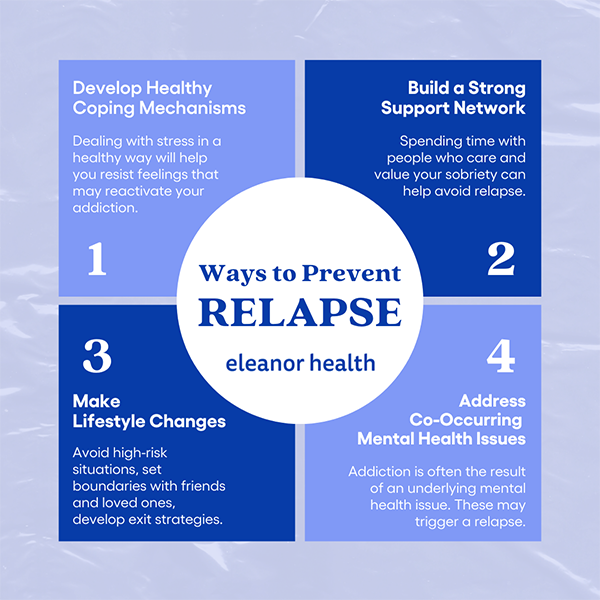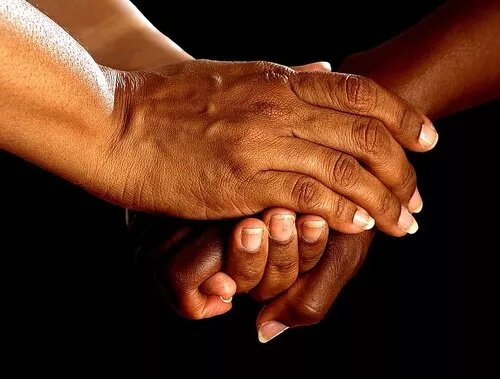Addiction is something that, like many diseases, can happen to anyone. One person is exposed to painkillers after an injury, and addiction forms before they are out of the hospital. Another takes a few ‘study drugs’ in college and finds they feel a powerful need to stay sped-up. Addiction can form around behaviors, too, like gambling or risk-taking which trigger certain neurotransmitters that can cause an uncontrollable desire for more.
Unfortunately, the influence of addiction never completely goes away. Like many chronic illnesses, it exists in a dormant state while you are living a good and careful life. But anyone can experience a relapse, especially in times of stress, difficulty, or triggering exposure.
According to the American Addiction Centers, between 40% and 60% of people who have been through treatment experience relapse. This rate is similar to relapse rates for other chronic diseases like hypertension and asthma, which stay with a person for their entire life. A relapse does not mean that a person or treatment has failed. It just means that treatment needs to be fine tuned.
If you have recently experienced a relapse, are worried about relapse, or know someone in this situation, it can help to understand the nature of relapse and it’s role in the addiction recovery process.
Relapse can be caused by environmental, mental, and physical triggers, as well as life circumstances that can increase the risk of a relapse occurring. Relapse usually occurs when your defenses are low, when you are struggling to maintain your supportive routine that helps to keep the addiction at bay. You may also have specific triggers that cause cravings to return, which can quickly result in a relapse if you cannot immediately call on your support system to regain control.
Environmental triggers include places, people, and situations that are strongly associated with your memories of addiction. For example, many people unconsciously reach for their substance of choice when they hear fighting, when they see something upsetting, or when they spend time with people who used to share their addition habits.
Mental triggers relate to your mental health. Relapse may be lurking for anyone. Triggers might include experiencing trauma, stress at work, conflict with a loved one, or re-activation of an untreated mental health issue.
Physical triggers may be engaging in activities that used to be associated with your addiction. But it could also include your response to physical pain or other sensations that used to cause you to reach for your substance. Stopping medication for addiction treatment can also be a physical trigger.
Coping Mechanisms:
You may have once coped with difficult situations through substance use. This includes mental health issues or conditions like social anxiety. Triggering your need for a coping mechanism can also trigger a relapse.
Lack of Support System:
Feeling alone, especially around triggering circumstances, can lead to relapse when you don’t have a support system to call upon to help you avoid relapse.
Unresolved Emotional Issues:
When emotional issues, such as childhood trauma, contribute to your addiction, facing those emotions again or their aftermath can make relapse more likely.

One of the biggest risks of a relapse is overdose. Consider someone who has given up desserts for a year and finally decides to eat cake at a party. Their first return to sugar, it can be all too easy to get sick instead of indulging just a little. Returning to drugs or alcohol, however, is far more dangerous. Your tolerance has been reset, and your craving may be extremely powerful. Together, these factors can result in an accidental overdose and even death.
While relapse can happen to anyone, there are ways to reduce your risk and help yourself to prevent triggers in the future. These methods can keep you from experiencing triggering emotions or stress and ensure that you have a support system to fall back on.
Stress is often a triggering factor for a relapse. Therefore, developing good coping mechanisms to deal with stress and difficult situations will help you to resist the feelings that may reactivate your addiction. Learn techniques like mindfulness and meditation. Build routines and rituals you can use to focus your mind and balance your emotions.
People in recovery need a support network of friends, family, and their recovery community to rely on. When you start to feel lonely, stressed out, or out of control, spending time with people who care about you and value your sobriety can help you avoid a relapse. A good friend or protective family member can help you stay on track and provide comfort when you are the most at risk of repeating old behaviors.
The more you change your life from the lifestyle you associate with addiction, the easier it will be to avoid a relapse. Avoid high-risk situations, set boundaries with friends and family, and develop exit strategies for situations that you feel may be triggering. New routines, environments, and valuable new people in your life can also make a big difference.
Are there mental health problems you’ve noticed are related to cravings? A panic attack, irrational anger, feelings of insecurity, experiencing fear over certain issues; these can become closely tied to addiction. In part, because addiction is often your original coping mechanism for these mental health issues. Seek out therapy and work your way through mental health problems such as anxiety, depression, and ADHD that can internally trigger relapse conditions. Sometimes, medication can help to balance the chemicals in your brain in a way that you once tried to achieve with substances.
If you should have a relapse, don’t panic. Don’t fall into a spiral of self-hate or give up on your sobriety. Everyone slips from time to time. After a relapse occurs – or even during a relapse if you become self-aware in the midst – is to minimize the damage to yourself and your life. Get rid of any substances, leave triggers, and get home safe.
Call a loved one, sobriety sponsor, therapist, or support group. Talk to someone who cares about you and who will give you good, practical advice. Have someone stay with you for the night, or for a few days, to help you get through the worst of the relapse and detox experience. This is when you need your support system the most.
If you are not currently in treatment for addiction, after a relapse is an important time to restart. Become part of a group, join therapy, or even attend a period of rehab, if you feel this is right. If you are involved in treatment, look for options to adjust treatment and increase the support you are getting from your treatment program.
After a relapse, it’s also important to forgive yourself and move forward. Use this as a learning experience. Become more familiar with your triggers, reinforce your support system, and try to rebuild your confidence and resolve to be your best, sober self.
Whether you are currently struggling with addiction, fear relapse, or are facing the aftermath of a recent relapse, Eleanor Health is here to help. Contact us today to explore the treatment and support that we can offer for those in recovery from clinics Florida, Louisiana, Massachusetts, North Carolina, New Jersey, Ohio, Texas, and Washington.
 How To Help Someone Through Drug or Alcohol Withdrawal
How To Help Someone Through Drug or Alcohol Withdrawal
 Signs and Symptoms of Drug Addiction – How to Tell if Someone Needs Help for a Drug Problem
Signs and Symptoms of Drug Addiction – How to Tell if Someone Needs Help for a Drug Problem
 How to Tell Your Family That You’re Struggling With Addiction
How to Tell Your Family That You’re Struggling With Addiction